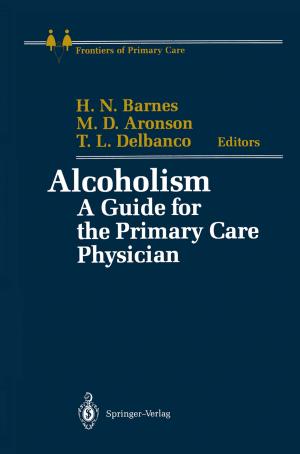The Eating Disorders
Nonfiction, Health & Well Being, Medical, Specialties, Family & General Practice, Psychiatry, Psychology| Author: | ISBN: | 9781461383000 | |
| Publisher: | Springer New York | Publication: | December 6, 2012 |
| Imprint: | Springer | Language: | English |
| Author: | |
| ISBN: | 9781461383000 |
| Publisher: | Springer New York |
| Publication: | December 6, 2012 |
| Imprint: | Springer |
| Language: | English |
As fish must swim so must man drink and eat Titus Petronius Arbiter Examine thy customs of diet Francis Bacon For John eat & drank to drive away Loves pain But all he could do he grew thinner & thinner Tho he eat & drank as much as Ten men for dinner Some said he had a Wolf in his stomach day and night William Blake To paraphrase and cast in contemporary speech observations of the Gothic-era monk Bernard of Clairvaux, the eating disorders may be viewed as a corruption of the social process, a distortion of the body image, and a perversion of bodily processes. It is this multifactorial etiology that makes the diagnosis and treatment of dietary -disorders so difficult and frustrating. Because of social demands and a distorted (body) image, men and women have perverted the simple act of eating into always painful, sometimes tragic, and occasionally deadly outcomes. The eating disorders fall into three categories. There is obesity-the overconsumption of food, and its antithesis, anorexia-the act of vol untary starvation. In true Hegelian fashion, there follows the synthesis, bulimia-the voluntary purging of overconsumed amounts of food to produce an anorectic-like countenance. As the contributing authors em phasize in their chapters, these diseases are not unique to contemporary culture. Rather they are cultural artifacts, created by both men and women, since classical antiquity. The recognition of these diseases is dependent upon recognizing a disease actually exists: that there is a distortion of the eating process.
As fish must swim so must man drink and eat Titus Petronius Arbiter Examine thy customs of diet Francis Bacon For John eat & drank to drive away Loves pain But all he could do he grew thinner & thinner Tho he eat & drank as much as Ten men for dinner Some said he had a Wolf in his stomach day and night William Blake To paraphrase and cast in contemporary speech observations of the Gothic-era monk Bernard of Clairvaux, the eating disorders may be viewed as a corruption of the social process, a distortion of the body image, and a perversion of bodily processes. It is this multifactorial etiology that makes the diagnosis and treatment of dietary -disorders so difficult and frustrating. Because of social demands and a distorted (body) image, men and women have perverted the simple act of eating into always painful, sometimes tragic, and occasionally deadly outcomes. The eating disorders fall into three categories. There is obesity-the overconsumption of food, and its antithesis, anorexia-the act of vol untary starvation. In true Hegelian fashion, there follows the synthesis, bulimia-the voluntary purging of overconsumed amounts of food to produce an anorectic-like countenance. As the contributing authors em phasize in their chapters, these diseases are not unique to contemporary culture. Rather they are cultural artifacts, created by both men and women, since classical antiquity. The recognition of these diseases is dependent upon recognizing a disease actually exists: that there is a distortion of the eating process.















